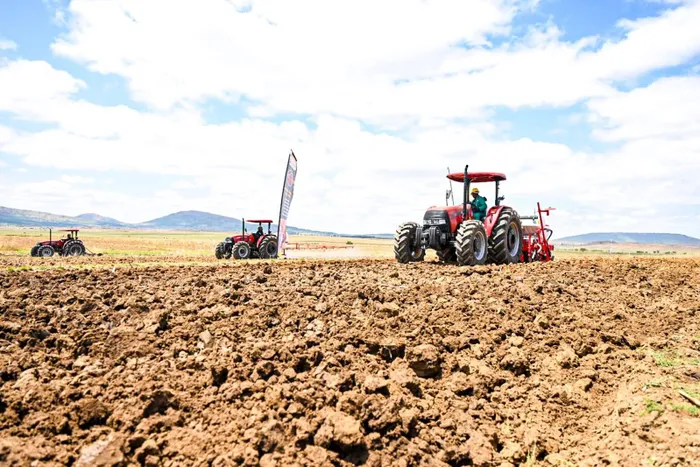Agriculture Master Plan driving steady growth in the sector, says Steenhuisen
AGRICULTURE

Steenhuisen described the AAMP as a “collective plan of action” aimed at achieving the National Development Plan’s vision for agriculture and agro-processing.
Image: KwaZulu-Natal Department of Social Development / Facebook
Minister of Agriculture John Steenhuisen said that the Agriculture and Agro-processing Master Plan (AAMP) is proving to be a step in the right direction for the agricultural sector.
Steenhuisen on Monday said that the latest figures emerging from the AAMP Progress Report indicate that agricultural production volumes have steadily increased from 11% in 2015–2019 to 13% in 2019–2023.
“This growth is attributed to the inclusivity and transformation agenda that the AAMP seeks to achieve. Data indicates that there has been significant growth in production volumes of various agricultural commodities," he said.
"For example, maize production has increased from 34% to 65%, soya bean from 72% to 80%, wheat from 17% to 53%, deciduous fruits from 17% to 49%, viticulture from 25% to 62%, and tomatoes from 8% to 94% over a period of three years.”
Steenhuisen described the AAMP as a “collective plan of action” aimed at achieving the National Development Plan’s vision for agriculture and agro-processing.
“Agriculture is fundamentally important to the country’s economy, as well as food security. South Africa’s agricultural future will be determined by how well we work together," he said.
"If we maintain the unity and resolve we have shown in this room, then the growth targets we have set—another 12 to 15% in the coming years—are not only achievable, they are within our grasp.”
Steenhuisen added he will continue to make a call to all stakeholders to come on board and make an effort to address the challenges that are facing the sector through solutions-driven and constructive engagements.
The Agricultural Business Chamber of South Africa (Agbiz) has responded positively to the Minister’s statement.
Theo Boshoff, CEO of Agbiz, said that they were part of the negotiation phase and also signed up to the AAMP in May 2021.
“The plan must be understood as a social compact between several parties, each with their own needs and ambitions. The mere fact that we managed to reach agreement on the outcomes is very positive as it implies that we share a vision of inclusive growth for the industry," he said.
"Implementation to date has seen mixed success. Where the Value Chain Roundtables have been established, there have been some real strides.”
Boshoff added that the department has made some progress in terms of their commitments.
“However, progress is lagging behind those initiatives that require action from government departments other than agriculture," he said. "This includes the refurbishment of irrigation schemes, gaining more preferential access to export markets and the like.”
After four years of implementation, Boshoff said it is fair to note progress, although the full scale of the plan’s ambitions has yet to be realised.
“This is also due to the design of the plan as some targets were vaguely captured and touch on issues that cut across the economy (i.e. rail transport, trade agreements, etc.). For the next phase, we are looking to tighten up and prioritise our actions on those initiatives that have action items and measurable outcomes," he said.
Boshoff added that the AAMP is certainly not perfect and I doubt that there is any party which agrees with 100% of its provisions.
“This is expected when you reach a negotiated outcome. However, if we can achieve just 50% of the targets we set ourselves, the agricultural value chain will already be in a much better space.”
Bennie van Zyl, general manager of TLU SA, said the reason for growth in the sector is successful farms.
“Commercial farms have produced food for the market. We believe that there are challenges in the AAMP and it may not be the AAMP alone leading growth in the industry. We believe that we need to meet with the Minister to discuss the challenges experienced.”
BUSINESS REPORT